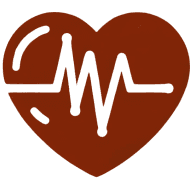Welcome to our deep dive into the realm of advanced cardiology diagnostics. This blog post will explore the cutting-edge technologies and innovative methods that are revolutionizing the field of cardiology. We'll examine how these advancements are enhancing our understanding of heart diseases and improving patient outcomes. Join us as we navigate through this fascinating topic, shedding light on the future of heart health.
The Evolution of Cardiology Diagnostics
The field of cardiology has seen significant advancements over the years. From the invention of the stethoscope to the development of electrocardiograms, each innovation has brought us closer to understanding the complexities of the heart. Today, we stand on the brink of a new era in cardiology diagnostics, one that promises to revolutionize how we diagnose and treat heart diseases.
Advancements in imaging technologies have played a crucial role in this evolution. For instance, the advent of echocardiography has allowed us to visualize the heart in real-time, providing invaluable insights into its structure and function. Similarly, the development of cardiac magnetic resonance imaging (MRI) has given us the ability to obtain detailed images of the heart, aiding in the diagnosis of various heart conditions.
Moreover, the rise of digital health technologies is reshaping the landscape of cardiology diagnostics. Wearable devices, telemedicine platforms, and mobile health apps are making it easier for patients to monitor their heart health and for doctors to provide timely and personalized care.
The Role of Artificial Intelligence in Advanced Cardiology Diagnostics
Artificial intelligence (AI) is making waves in the field of advanced cardiology diagnostics. AI algorithms can analyze vast amounts of data, identify patterns, and make predictions with remarkable accuracy. This capability is particularly useful in cardiology, where early detection and accurate diagnosis can significantly improve patient outcomes.
For instance, AI can analyze electrocardiogram (ECG) data to detect arrhythmias, a condition that can lead to serious complications if left untreated. Similarly, AI can assist in the interpretation of echocardiograms, helping to identify abnormalities in the heart's structure and function.
Moreover, AI can predict the risk of heart disease by analyzing a variety of data, including genetic information, lifestyle factors, and medical history. This predictive capability can help doctors to intervene early and prevent the onset of heart disease.
The Impact of Genomics on Advanced Cardiology Diagnostics
Genomics is another area that is transforming advanced cardiology diagnostics. The study of an individual's complete set of genes, or genome, can provide valuable insights into their susceptibility to heart disease.
Genetic testing can identify mutations that increase the risk of certain heart conditions, such as hypertrophic cardiomyopathy and long QT syndrome. This information can guide treatment decisions and help to prevent serious complications.
Moreover, genomics can help to personalize treatment for heart disease. By understanding how a patient's genes influence their response to medication, doctors can tailor treatment to the individual, improving its effectiveness and reducing side effects.
The Promise of Precision Medicine in Advanced Cardiology Diagnostics
Precision medicine is a new approach to healthcare that takes into account individual differences in genes, environment, and lifestyle. In the field of advanced cardiology diagnostics, precision medicine promises to deliver more accurate diagnoses and more effective treatments.
For instance, precision medicine can help to identify the most effective treatment for a patient based on their genetic makeup. This approach can improve patient outcomes and reduce healthcare costs by avoiding ineffective treatments.
Moreover, precision medicine can help to prevent heart disease by identifying individuals at high risk and intervening early. This proactive approach can reduce the burden of heart disease and improve the quality of life for patients.
The Future of Advanced Cardiology Diagnostics
The future of advanced cardiology diagnostics looks bright, with several promising technologies on the horizon. For instance, liquid biopsies, which involve analyzing DNA in the blood, could provide a non-invasive way to diagnose heart disease.
Moreover, the integration of AI and genomics could lead to the development of powerful predictive models, enabling doctors to predict the onset of heart disease with unprecedented accuracy.
Furthermore, the rise of digital health technologies could democratize access to advanced cardiology diagnostics, making it possible for individuals in remote areas to monitor their heart health and receive timely care.
The Challenges and Opportunities in Advanced Cardiology Diagnostics
Despite the exciting advancements in the field, there are several challenges that need to be addressed. For instance, the integration of AI and genomics into clinical practice requires careful consideration of ethical and privacy issues.
Moreover, the widespread adoption of digital health technologies requires robust cybersecurity measures to protect patient data. Additionally, there is a need for more research to validate the effectiveness of these technologies and to understand their long-term impact on patient outcomes.
Nevertheless, the opportunities in advanced cardiology diagnostics are immense. By harnessing the power of these technologies, we can improve our understanding of heart disease, enhance patient care, and pave the way for a healthier future.
The Heart of the Matter: A Look at Advanced Cardiology Diagnostics
As we've explored, advanced cardiology diagnostics is a rapidly evolving field, brimming with potential. From AI and genomics to precision medicine and digital health technologies, these advancements are reshaping the landscape of heart health. While challenges remain, the opportunities are immense. As we continue to innovate and push the boundaries of what's possible, we move closer to a future where heart disease is not a death sentence, but a manageable condition.

